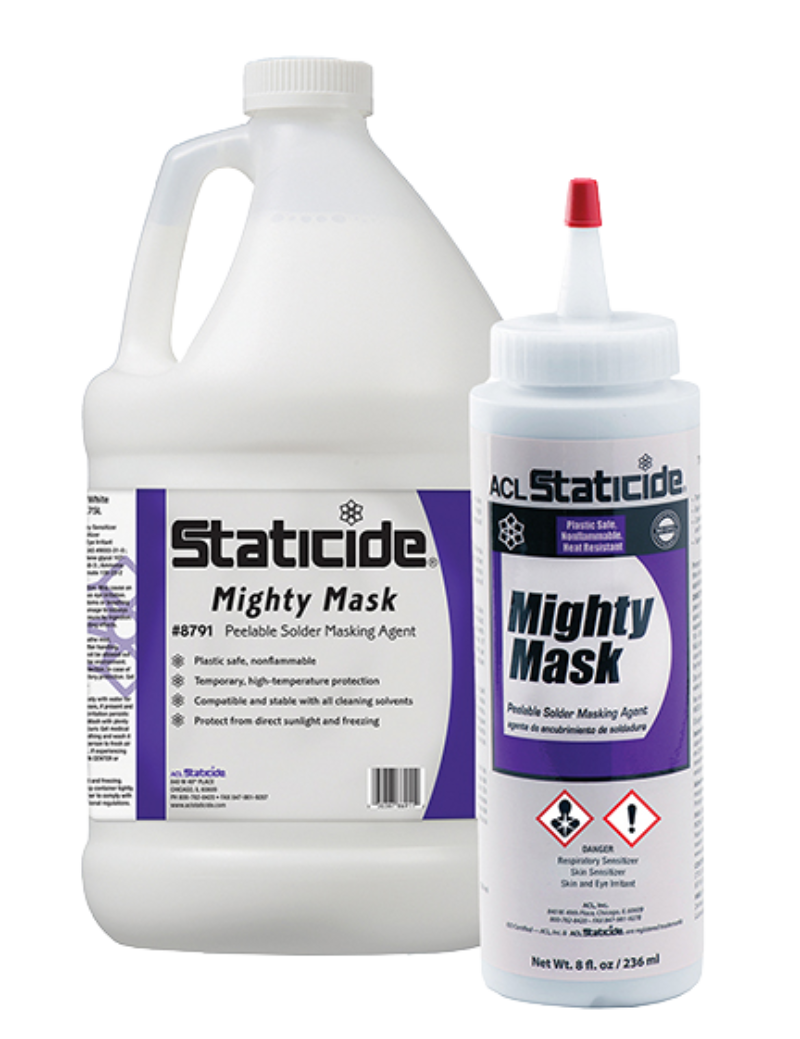Posted on Wednesday 30th January, 2019
Solder Masking Agents: Essential for PCB Production, Rework, and Repair

Often when working on intricate printed circuit boards (PCBs) we experience solder bridges – those unintended electrical connections between two conductors due to small bits of solder or flux materials. What can be done to prevent this from occurring?
Solder mask, or solder stop as it is frequently called, is a thin, lacquer-like polymer film that can be applied to nickel or copper traces on PCBs to protect against oxidation and the formation of bridges between components.
Essential in mass-produced PCBs, solder masks are used in assembly applications like thru-hole masking and conformal coating. The benefits are many including protecting circuits from corrosion and electrical shorts, providing electrical insulation, and keeping the solder on the pads to minimize solder bridges.
Whether you’re wave soldering or hand soldering, masks are very useful for protecting plated thru-holes, contacts, pins, posts, terminals, and gold fingers on PCBs. In addition, they make hand soldering faster, easier, and more accurate.
Used with care, solder masks are essential to successful and effective component placement on PCBs and for preventing board or component failure. Typically they are temporary and either peelable or water-soluble. Look for brands that are non-contaminating and don’t leave ionic or corrosive residue.
ACL Staticide® Mighty Mask 8691 is a hand-applied, fast-curing peel-able solder masking agent. It contains natural latex formulated with high-temperature resistant compounds that protect component-free areas during wave soldering. Mighty Mask 8691 is easy to use and dries tack free in 30 minutes. The product has superior strength and is compatible with most flux systems and cleaning solvents.
Prevent unwanted soldering during both wave and hand soldering projects with ACL’s reliable temporary solder mask. Like we always say, here at ACL, we have you covered.
This entry was posted in PCB Production, Rework and Repair. Bookmark the permalink.

